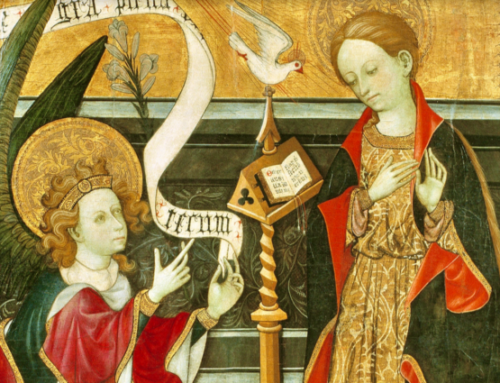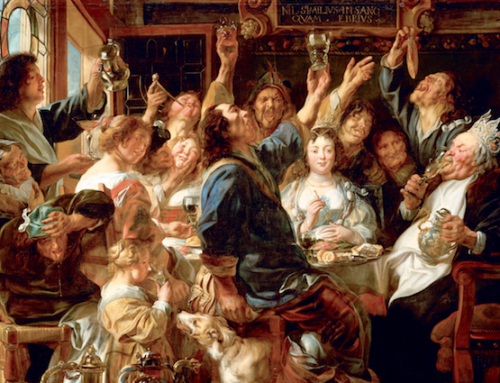 On February 25, 2019, at age sixty-four, Mark David Hollis passed away. Though he had not been active for more than two decades in the music industry, his death is a great loss to the art world. Hollis was the “J.D. Salinger of the rock world” but, frankly, much cooler and much more talented. He was a musician’s musician, and an artist’s artist. Unlike so many in the world of entertainment, he spoke with conviction and he acted with equal conviction, defining his own art and his own path, whatever the cost.
On February 25, 2019, at age sixty-four, Mark David Hollis passed away. Though he had not been active for more than two decades in the music industry, his death is a great loss to the art world. Hollis was the “J.D. Salinger of the rock world” but, frankly, much cooler and much more talented. He was a musician’s musician, and an artist’s artist. Unlike so many in the world of entertainment, he spoke with conviction and he acted with equal conviction, defining his own art and his own path, whatever the cost.
After making it huge in the pop market and on the then-newly emergent MTV in 1982 and 1984, Hollis went into full and complete artistic mode, creating music for the sake of beauty rather than for the sake of profit. He became, rather gloriously, a record-label’s worst nightmare, incomprehensible in a world of carefully-crafted market images. Hollis’s first two albums, written under the admitted silly name Talk Talk, were The Party’s Over and It’s My Life. Though band label EMI initially marketed them as a straight-forward New Wave pop group in the early 1980s, the band’s first two albums revealed much promise, in terms of song structure and, especially, in terms of lyrics. Interspersed with typical 80s dance beats and overly synthesized keyboards, were lyrics about loss and redemption, confusion and hope, not exactly typical of the time.
Take this punishment away Lord
Name the crime I’m guilty of
Too much hope I’ve seen as virtue
Again, it’s worth remembering, few on MTV would even reach toward lyrics of this caliber, let alone speak of God without irony and cynicism.
In 1986, he wrote and produced The Colour of Spring, a stunning song cycle sounding more psychedelic and mystical than pop. Replacing the omnipresent synthesizers of the first two albums, Hollis and his co-composer, Tim Friese-Greene, wrote their music around the organic sounds of organ and choir, while incorporating enough instruments to make a symphony proud. The album sought texture and nuance rather than bombast. And, once again, Hollis seemed quite blunt about his faith and his struggles in it. The song cycle begins with a children’s chorus praising Jesus and ends with an adult church choir singing about the complexities of will, purpose, and the nature of the good. The choir repeats:
As bad as bad becomes
It’s not a part of you
And love is only sleeping
Wrapped in neglect
Despite the gravitas of the music and the lyrics, The Colour of Spring sold well enough that EMI gave Hollis and Friese-Greene free reign on the fourth album, Spirit of Eden. Along with famed audio engineer, Phill Brown, the two men went fully mystical. Renting an abandoned church for fourteen months, Talk Talk did everything possible to create timelessness in the sacred space. Relying on the lighting of the stained glass and lava lamps, the band spent over a year trying to capture specific sounds, piecing them together as a whole. Side one of the album became one eighteen minute track, begging the Lord to rage against injustice. Over its nearly twenty-minute length, the song moves from the sound of sea scapes to an utterly cacophonous passion, finally resolving with a recognition that a man is inherently flawed and, thus, unable to perfect all things. The album concludes with “Wealth,” a lyrical rewrite of the famous prayer of St. Ignatius of Loyola.
Create upon my flesh
Create approach upon my breath
Bring me salvation if I fear
Take my freedom
Create upon my breath
Create reflection on my flesh
The wealth of love
Bear me a witness to the years
Take my freedom
Create upon my flesh
Create a home within my head
Take my freedom for giving me a sacred love
Aghast at the final product, a befuddled EMI dropped the band as quickly as possible.
The same group of men, minus the bassist, created one last Talk Talk album, Laughing Stock, released in 1991. Continuing in the same direction begun by Spirit of Eden, Laughing Stock was even less marketable, more abstract, and more blatantly Christian than the previous albums. It’s longest track, “New Grass,” at nine minutes and forty seconds long proclaims:
Lifted up
Reflective in returning love you sing
Errant days filled me
Fed me illusion’s gate
In temperate stream
Welled up within me
A hunger uncurbed by nature’s calling
Seven sacraments to song
Versed in Christ
Should strength desert me
They’ll come
They come
A jazz label—Polydor’s Verve—took on the band, though the conditions of the contract have never been made public. Almost certainly, Verve expected the band to make at least one more album. Originally titled Mountains of the Moon by Talk Talk, Mark Hollis released his final album, simply entitled Mark Hollis/Mark Hollis in 1998. Though distinctively Hollis’s sound, the entire album was recorded using only one microphone and, at least on the surface, employing a far less convoluted song structure than he had on his previous albums. Whatever the appearances, the album as deep as anything else he wrote, rewarded the listener repeatedly, even after twenty-one years.
With the release of Mark Hollis/Mark Hollis, Hollis contributed a few songs here and there in the pop world and on soundtracks, but he, for all intents and purposes, retired from the music industry in 1998. As he noted then and later—though, like Salinger, he faded almost completely out of the public light after 1998–he could not be both a musician and a father, and he gave up the former for the latter. For the last two decades, his reputation had only increased in intensity with his mysterious absence, and his albums have continued to sell well, especially as his music has been repeatedly been “rediscovered.”
My own journey with the band began in 1982, when one of my closest high-school friends purchased Talk Talk’s first release, a four-song EP, what would later become the first album, The Party’s Over. I really liked the music, but it didn’t grab me then as anything special. In the spring of 1987, at the very end of my freshman year of college, I came across a copy of the band’s third album, The Colour of Spring. I was so taken with the album cover—a wild collection of colored moths—that I bought the album. To state that the album changed my life would not be hyperbole. Despite being a rather proud agnostic and skeptic at the time, I found the music utterly compelling. While I couldn’t make out the lyrics (the album I purchased did not come with a lyric sheet), I recognized the intensity and mysticism of the music. Over the next year, I listened to the album repeatedly, studying and analyzing every thing about it I could.
In February 1988, a little less than a year after I first heard The Colour of Spring, I came back to my Catholic faith. While this return had much to do with some strange circumstances in Morocco and the patient conversations (and letters exchanged) with Kevin McCormick, I would be dishonest to claim that the music of Talk Talk did not inspire me to understand the sacred. It most certainly did. Then, something truly stunning happened. Kevin and I went to London for several weeks that April (1988). Not only did we visit EMI studios and try to find Mark Hollis (we failed), but we finally found the lyric sheet of The Colour of Spring in a London record store. As I stood reading the T.S. Eliot-esque lyrics—especially as a newly-returned-to-the-faith Roman Catholic—I began to sob. The lyrics were even better and more Christian than I had guessed, and so much of my life—the good, the bad, the misunderstood—came together in that moment. At that point in my life, nothing could have seemed more beautiful or more perfectly timed. Standing there, I felt forgiveness and redemption—toward myself and others. And, I realized that artistry really could make the fallen world a bit better. That fall, after returning to Notre Dame for my junior year of college, the band released The Spirit of Eden. Kevin and I received an advanced copy at the campus radio station, and we listened to it in complete silence, each of us overwhelmed by its depths. The final Talk Talk album did not come out until my second year of graduate school, and, once again, it energized me intellectually and spiritually.
Since 1987, Mark Hollis’s music has never not been a part of my life. Kevin and I pledged to one another in college that we would listen to The Colour of Spring every April 5 (the title of one of the tracks on the album). April 5, 2019, will mark the twenty-first time each of us has lived up to that promise.
On the final track of The Colour of Spring, Hollis assures his listeners:
Kissing a grey garden
Shadow and shade
Sunlight treads softly
As bad as bad becomes
It’s not a part of you
The wicked and the weeping
Ramble or run
Now that it’s over,
Now that it’s over
Now that it’s over
Now that it’s over
Rest your head
Thank you, Mark David Hollis. You ran the race, and you fought the good fight. Now, it’s time to rest your head… in the love of He whom you praised again and again in your art.
The Imaginative Conservative applies the principle of appreciation to the discussion of culture and politics—we approach dialogue with magnanimity rather than with mere civility. Will you help us remain a refreshing oasis in the increasingly contentious arena of modern discourse? Please consider donating now.







Beautiful article Bradley, thank you so much for so kindly writing it. I was very upset by hearing the news of his passing. May he rest his head.
Your comments are spot on. And your experience of Hollis’ music is similar to mine. He was a giant talent. May he rest in peace.
A lovely, perceptive article. Mark Hollis’ music is wonderful, transcendent, and is a genre of its own. Thank you.
Great article! Always thought there was a Christian view in his music. Wonderful music, wish there was more like this
Thank you for this article. It’s a befitting tribute to an artist who bared his soul in his music. I’m only just coming to know Hollis’ body of work and regret not paying better attention in the ’80s. My kingdom for a time machine.
Much like yourself, exposure to this calibre of music is having a profound effect on me. While it troubles me that he was not appreciated in the industry during his day, it brings me much hope to see his legacy grow in momentum as the years pass. It never ends!